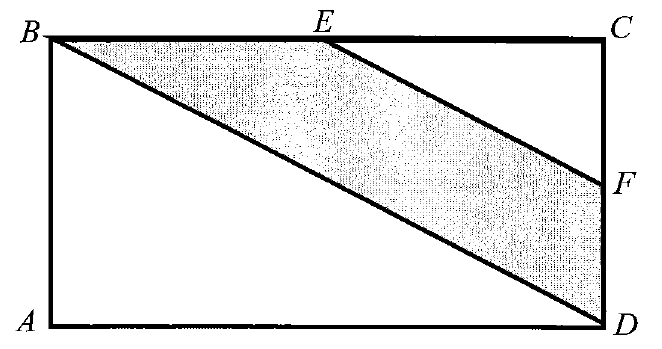QUESTIONS ON ADDITION THEOREM OF PROBABILITY
Question 1 :
If P (A) = 2/3, P(B) = 2/5, P(AU B) = 1/3 then find P(AnB).
Solution :
P(A n B) = P(A) + P(B) - P(AUB)
P(A n B) = (2/3) + (2/5) - (1/3)
P(A n B) = (10 + 6 - 5)/15
P(A n B) = 11/15
Question 2 :
A and B are two events such that, P(A) = 0.42, P(B) = 0.48 and P(A n B) = 0.16. Find
(i) P (not A) (ii) P (not B) (iii) P (A or B)
Solution :
P(A) = 0.42
P(not A) = 1 - P(A)
= 1 - 0.42
P(A bar) = 0.58
(ii) P (not B)
P(not B) = 1 - P(B)
= 1 - 0.48
P(not B) = 0.52
(iii) P (A or B) = P(A U B)
= P(A) + P(B) - P(A n B)
= 0.42 + 0.48 - 0.16
= 0.74
Question 3 :
If A and B are two mutually exclusive events of a random experiment and P(not A) = 0.45, P(A U B) = 0.65, then find P(B)
Solution :
Since A and B are mutually exclusive events, P(A n B) = 0.
P(not A) = 0.45
P(A) = 1 - P(not A)
P(A) = 1 - 0.45
P(A) = 0.55
P(An B) = P(A) + P(B) - P(AUB)
0 = 0.55 + P(B) - 0.65
0.1 = P(B)
P(B) = 0.1
Question 4 :
The probability that atleast one of A and B occur is 0.6. If A and B occur simultaneously with probability 0.2, then find P(A bar) + P(B bar).
Solution :
P(A or B) = P(A U B) = 0.6
P(A n B) = 0.2
P(A n B) = P(A) + P(B) - P(A U B)
0.2 = P(A) + P(B) - 0.6
P(A) + P(B) = 0.2 + 0.6
P(A) + P(B) = 0.8
1 - P(not A) + 1 - P(not B) = 0.8
2 - 0.8 = P(not A) + P(not B)
P(not A) + P(not B) = 1.2
Question 5 :
The probability of happening of an event A is 0.5 and that of B is 0.3. If A and B are mutually exclusive events, then find the probability that neither A nor B happen
Solution :
P(A) = 0.5, P(B) = 0.3
P(A n B) = 0(Since A and B are mutually exclusive events)
P(A bar n B bar)
P(A U B) = P(A) + P(B) - P(A n B)
P(A U B) = 0.5 + 0.3 - 0
P(A U B) = 0.8
P[(AUB) whole bar] = 1 - P(A U B)
P[(AUB) whole bar] = 1 - 0.8
P[(AUB) whole bar] = 0.2
Kindly mail your feedback to v4formath@gmail.com
We always appreciate your feedback.
©All rights reserved. onlinemath4all.com
Recent Articles
-
Digital SAT Math Problems and Solutions (Part - 137)
Apr 06, 25 08:42 AM
Digital SAT Math Problems and Solutions (Part - 137) -
Digital SAT Math Problems and Solutions (Part - 136)
Apr 06, 25 08:38 AM
Digital SAT Math Problems and Solutions (Part - 136) -
Logarithm Problems and Solutions (Part - 2)
Apr 05, 25 12:09 PM
Logarithm Problems and Solutions (Part - 2)
